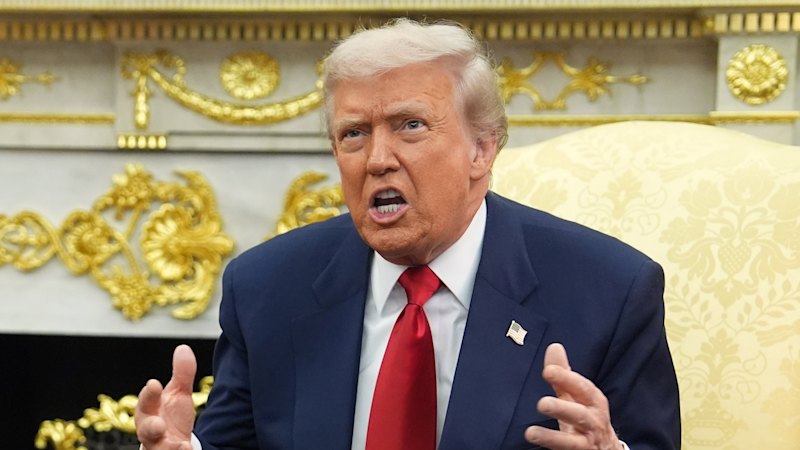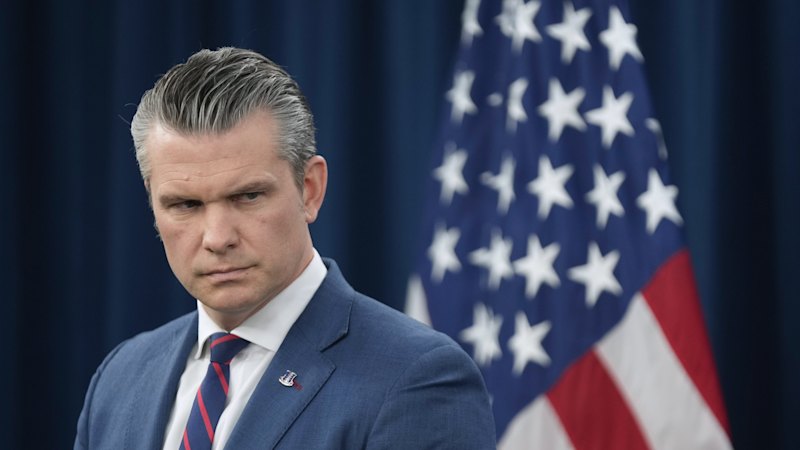
US President Donald Trump has accused Democratic lawmakers of sedition after they released a video urging members of the military to refuse illegal orders. In a post on Truth Social, Trump described the actions of the six Democratic politicians as “SEDITIOUS BEHAVIOR, punishable by DEATH!” This marks a significant escalation in Trump’s rhetoric, as he has increasingly targeted political adversaries since assuming office in January.
The video, released earlier this week, features prominent lawmakers, including Senators Elissa Slotkin and Mark Kelly, who both have military backgrounds. They addressed military personnel and intelligence community members, emphasizing the need to uphold the Constitution and to resist unlawful commands. Slotkin, a former CIA analyst and Iraq war veteran, stated, “We need you to stand up for our laws, our Constitution. Don’t give up the ship.”
Trump’s comments have drawn sharp criticism from various Democratic leaders. They expressed concern that such declarations could incite violence against lawmakers. Following Trump’s statements, leaders in the House of Representatives contacted the US Capitol Police to ensure the safety of their colleagues. During a subsequent news briefing, White House spokeswoman Karoline Leavitt denied that Trump advocated for the execution of Congress members but criticized the Democrats for allegedly encouraging military insubordination.
Legal Context of Sedition Claims
While US law does not explicitly define sedition for civilians, it does include provisions for “seditious conspiracy,” which carries a maximum penalty of 20 years. Within the military framework, the Uniform Code of Military Justice addresses sedition specifically, allowing for severe consequences, including death. This legal backdrop has intensified the debate surrounding Trump’s incendiary remarks.
Democratic lawmakers have asserted that their video was a necessary reminder of legal obligations. In response to Trump’s accusations, Senator Chris Coons stated, “Calling for the execution of senators and members of Congress for reminding our troops of that is chilling behavior we should expect from authoritarians … not the president of the United States.” He urged Republican colleagues to denounce Trump’s remarks.
Conversely, many Republican leaders remained silent on the issue. Senator Lindsey Graham, a staunch Trump ally, remarked that he was unaware of any illegal orders being given to the military and suggested Democrats should clarify their statements.
Implications for National Discourse
Trump’s language has raised alarms among Democrats, with Senate Majority Leader Chuck Schumer calling it an outright threat. He remarked, “When Donald Trump uses the language of execution and treason, some of his supporters may very well listen. He is lighting a match soaked with gasoline.” Such comments reflect growing concern over the divisive and potentially violent implications of political rhetoric in the current climate.
As the political landscape continues to evolve, the exchange between Trump and Democratic lawmakers underscores the tensions surrounding military authority and the interpretation of lawful orders. The implications of this confrontation extend beyond mere words, potentially affecting national security and public trust in governmental institutions.
In summary, Trump’s remarks about Democrats’ actions towards the military exemplify the heightened polarization in US politics. As lawmakers navigate this contentious environment, the focus remains on the constitutional duties of military personnel and the responsibilities of elected officials to uphold the rule of law.






